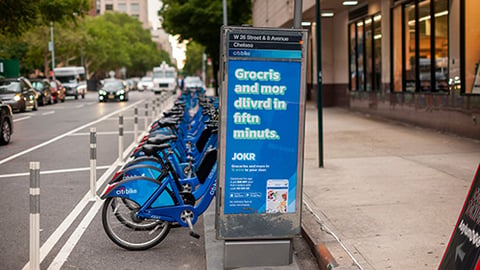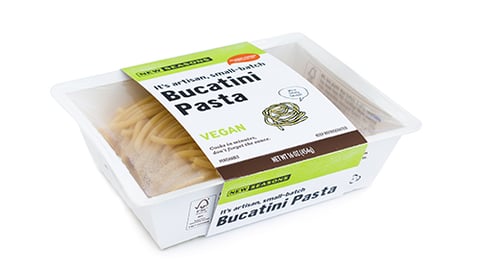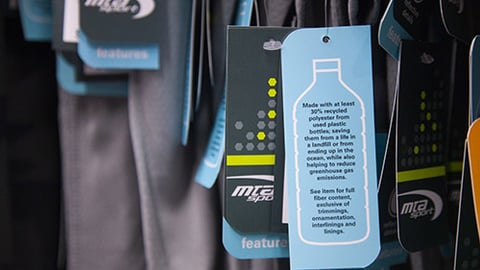Retailers Need to Lead Charge Toward Sustainable Practices: Survey
New data from Sensormatic Solutions, the global retail solutions portfolio of Ireland-based Johnson Controls, highlights that the era of retail responsibility for sustainable initiatives is in full swing. According to the company’s 2022 survey on U.S. consumer sentiment toward sustainability, almost half of respondents believe that the responsibility for implementing sustainable practices falls on retailers and corporations, as opposed to individuals or government regulators.
The survey also showed that consumers are highly invested in shopping sustainably, wanting to know that their dollars are going to companies that are doing the right thing when it comes to the environment. More than half of those surveyed — 53% — said that they’d use a brand or store less frequently if they discovered that it wasn’t operating sustainably, and 18% said that they’d stop shopping with that retailer altogether. Furthermore, 70% of consumers said that they’re willing to pay at least 5% more for products that can demonstrate a fully sustainable supply chain — even though cost is the most cited barrier to sustainable shopping (55%), closely followed by consumers’ perception that the stores they frequent don’t offer many sustainable options (47%).
Grocers are taking note. For example, Meijer Inc. is preparing for its inaugural Sustainability Supplier Summit to find more new sustainable products – from food to pets to home goods – to consider carrying in its stores. To meet the company’s sustainability standards, Meijer merchants are targeting 38 certifications on vendor products or their manufacturing and procurement processes.
Perhaps the most compelling takeaway regarding corporate responsibility is consumers’ belief that retailers’ sustainability work is far from complete. More than 90% of respondents said that it’s important to them that retailers continue to improve environmental performance and energy management in their stores. Sixty-two percent would like to see this done through a switch to sustainable packaging alternatives, and 54% would like retailers to enhance inventory intelligence to avoid overstocks, wasted goods, added deliveries while optimizing fulfillment methods, and more.
Independent grocery store chain New Seasons Market recently unveiled a major shift toward sustainability. The retailer will transition its private label Partner Brand Fresh Pasta packaging from plastic clamshells to a greener option, the Paperseal MAP tray.
Meanwhile, big-name retailers like Walmart, Amazon and Target are making headway in creating sustainability-focused stores, incorporating design features like LED lighting, recycled building materials and solar panels.
“This survey speaks to a belief we’ve long held: Prioritizing sustainable solutions is simply good business,” said Kim Melvin, global leader of marketing at Sensormatic Solutions. “Facilitating sustainable retail operations has been at the heart of Sensormatic Solutions’ business for some time, but now, that same sentiment is mirrored among consumers. American shoppers of all ages want to see brands make investments that support responsible retail at all levels. In fact, they don’t see businesses engaging in sustainable operations as an option — they see it as an obligation.”
Sensormatic Solutions collected responses from 1,000 U.S.-based consumers, 18 years and older, via a third-party provider to determine findings of its 2022 sustainability survey. The survey was conducted Jan. 28-30. More results from the survey can be accessed via “The Era of Sustainable Retail.”






